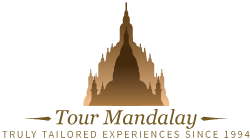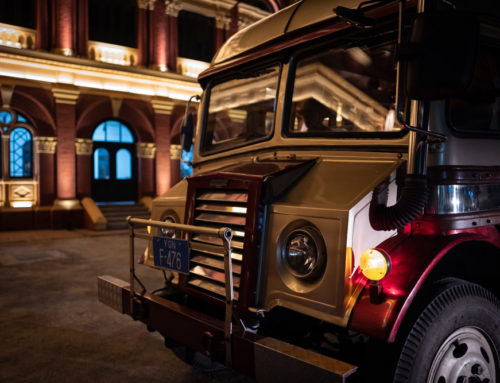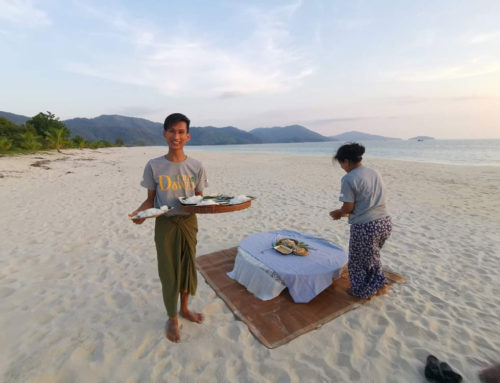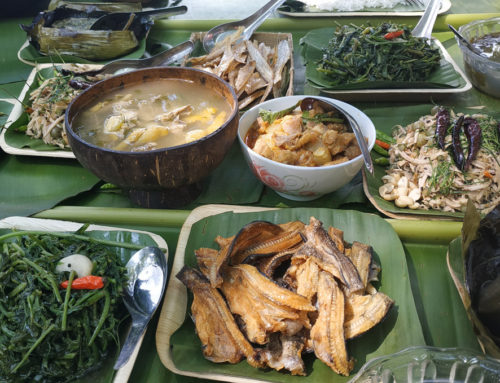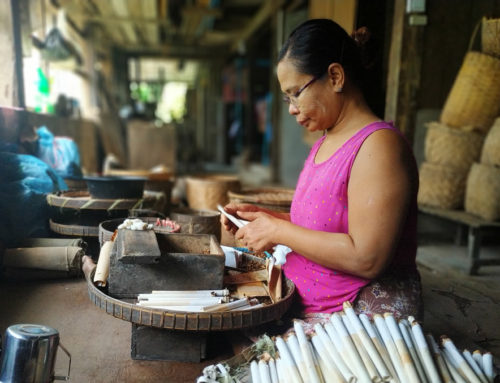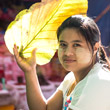Tour Mandalay’s Sustainability Policy
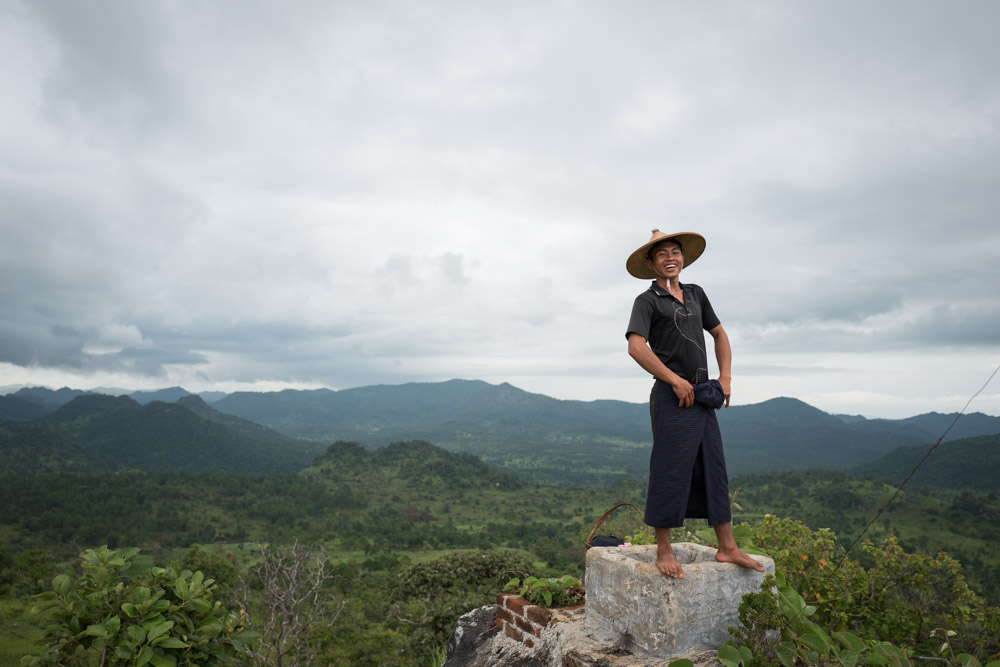
A community-based guide from Kayah State
Introduction
Locally owned, locally based and focusing solely on Myanmar, we care deeply for our country and are dedicated to protecting, preserving and contributing to it.
Our aim is to operate our company and our tours in a way that benefits the Myanmar people and the economy, whilst doing everything we can to minimise our impact on its precious culture, environment and wildlife. We believe that sustainability is the key to creating meaningful experiences for those who travel with us and hence, we make deliberate decisions about the product we offer to achieve this objective.
We continually strive to inform, educate and demonstrate this commitment to our staff, suppliers, partners and guests and as Myanmar grows and changes, we do the same – aiming to improve and develop our approach, ensuring it remains relevant in country and aligned with international standards.
Being in the fortunate position to influence the industry and shape how people travel, we have a responsibility to our country, and to ourselves, to make sure travel to Myanmar is always sustainable.
People and culture
One of the main intentions, and usually the highlight, of a trip to Myanmar is the connections visitors make with local people and their culture. Our aim is for these experiences to be positive, interactive and of mutual benefit:
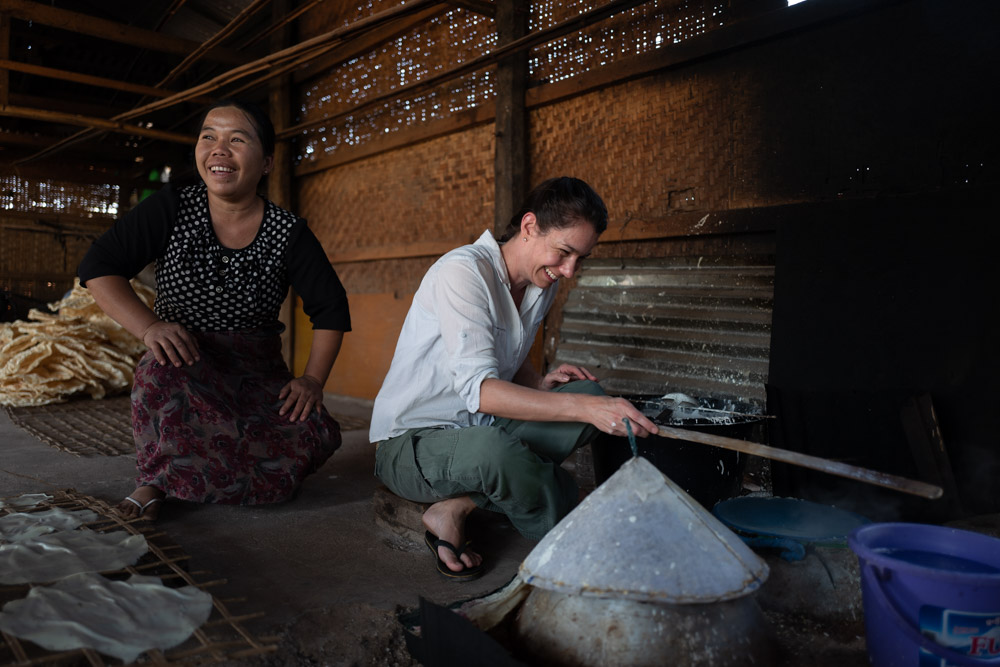
Let’s make tourism fun for everyone!
- We endeavour to treat local people equally and with respect, regardless of their language, religion or ethnicity. We arrange all home visits in advance and check that any intrusions are okay. Women’s empowerment projects often feature in our excursions, such as the Yuwaddy Centre in Yangon;
- Our tours appreciate the value of Myanmar history, culture and tradition but we also understand that some local customs and beliefs may be unfamiliar or different. We encourage visitors to learn as much as they can before they arrive, to be open minded and follow the advice of their guide in these situations;
- We strive to offer experiences that are authentic, natural and aren’t forced. To encourage sharing and help to break down cultural barriers, we suggest our guests bring photos, learn a few Myanmar words or come armed with questions to ask – these small efforts make a huge difference;
- We seek to build open, fair relationships with the local people with whom we work and regularly ask for their honest feedback on these;
- We educate our partners and travellers about acceptable behaviour and manners prior to their trip, and when in country, our guides do the same. For example, appropriate dress at religious sites, asking before taking photos and speaking kindly to local people. We also promote the ‘Do’s and Don’ts for Tourists’ guide published by the Ministry of Hotels and Tourism (MOHT).
Children
Visiting orphanages and schools has become popular practise for well-intentioned travellers looking to give their time and money to a seemingly worthwhile cause, however, research overwhelmingly shows that these activities cause more harm than good. In Myanmar, this is a sensitive subject as schools and orphanages are generally underfunded, are often run by Buddhist or other religious organisations and awareness of child protection is in its infancy.
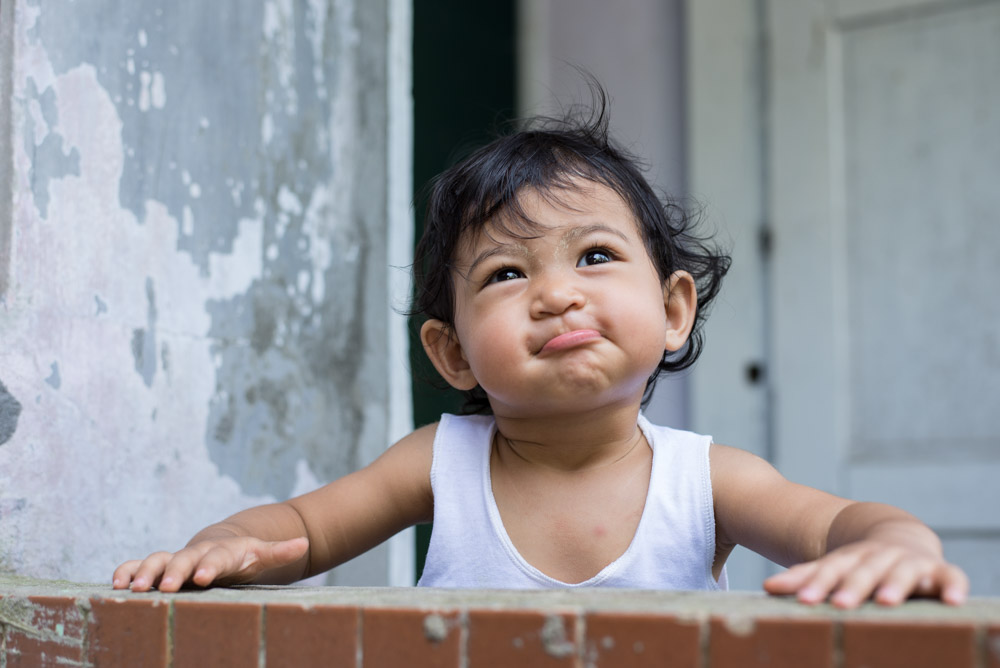
We strongly believe that children are not tourist attractions
We firmly believe that children are entitled to a safe environment and quality education but also that they are not tourist attractions. With regulation lacking in Myanmar, we want to do all we can to avoid the exploitation of children that has taken place in neighbouring countries, such as Cambodia, and hence we no longer include school or orphanage visits in our tours. Neither do we encourage donations to orphanages or religious organisations that educate or care for children.
Anti-slavery
We are thoroughly committed to respecting human rights and have put measures in place to prevent and eliminate slavery and human trafficking in our business and supply chains.
Our Product and Sustainability Team diligently chooses and regularly assesses the product we sell and suppliers with whom we work. In addition to building strong relationships we audit their practices through personal inspections, a yearly health and safety questionnaire and staff and traveller feedback, using in-house technology to report.
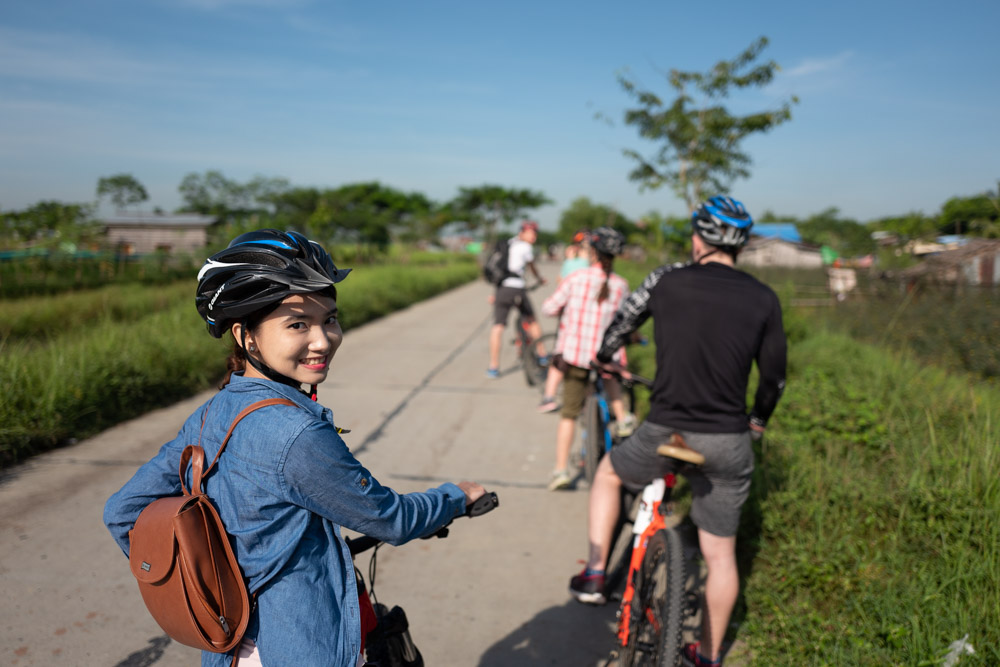
Su Myat, Tour Mandalay’s Senior Product Executive, carrying out an inspection trip
Visits to teashops, for instance, are commonly featured in itineraries, offering travellers an insight into Myanmar culture. They are often family businesses that employ young people, however, so we carefully choose the ones we include.
These subjects are again relatively novel in Myanmar and have to be approached with sensitivity, but progress is being made with revisions to legal employment age and minimum wage standards (2019). We are fortunate that adherence to the Modern Slavery Act is part of our agreement with our UK partners and that we have participated in a number of external audits appraising our compliance.
UNICEF and the Hanns Seidel Foundation Myanmar have published some excellent research, in the context of Myanmar specifically, and we use the work of these bodies as well as our experience and to guide our approach and train our staff. We are also a member of The Code, an organisation advocating to end sexual exploitation and human trafficking in the tourism industry.
Our employees
Our people are our greatest asset and their well-being and professional advancement is paramount. Adhering to Myanmar national employment legislation all of our staff receive fair wages, maternity, sickness, social security and leave benefits, reasonable working hours with adequate rest, and employment contracts outlining their roles and responsibilities. Our guides and drivers also receive an additional accommodation and meal allowance when on assignment. We are an equal opportunity employer and are dedicated to a diverse, tolerant workplace and a comfortable office environment.
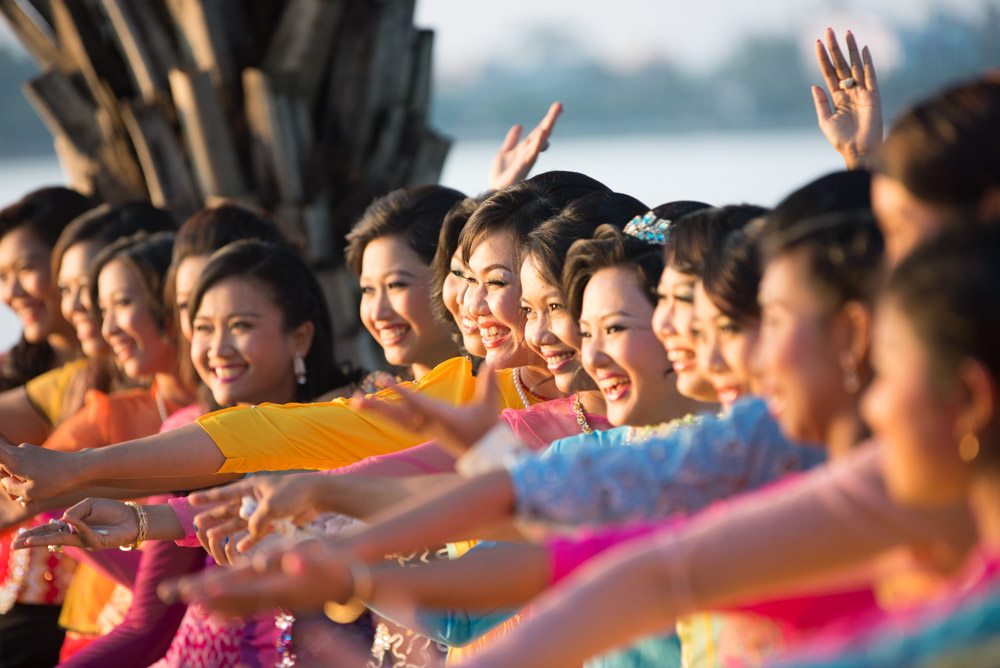
Tour Mandalay’s staff celebrating another year
Some of the other benefits we provide our team include:
- Comprehensive, regular in-house training for all positions and the opportunity for internal progression for those interested;
- Regular team and company socials and workplace incentives;
- Office kitchen and dining hall stocked with tea and coffee, and a library/ quiet space for staff use;
- Generous flexibility beyond the standard terms of employment including extended leave and supplementary pay in exceptional circumstances;
- Equal opportunity for all staff to participate in FAM trips.
Economy
The tourism industry has changed dramatically in recent years and travelling responsibly is now a genuine way for visitors to have a truly positive impact. We have seen first-hand how the financial benefits of tourism are offering local people the means to secure better livelihoods, thus encouraging them to preserve their unique culture and traditions. On a larger scale, tourism is providing a much-needed ethical source of income for the country’s economy.
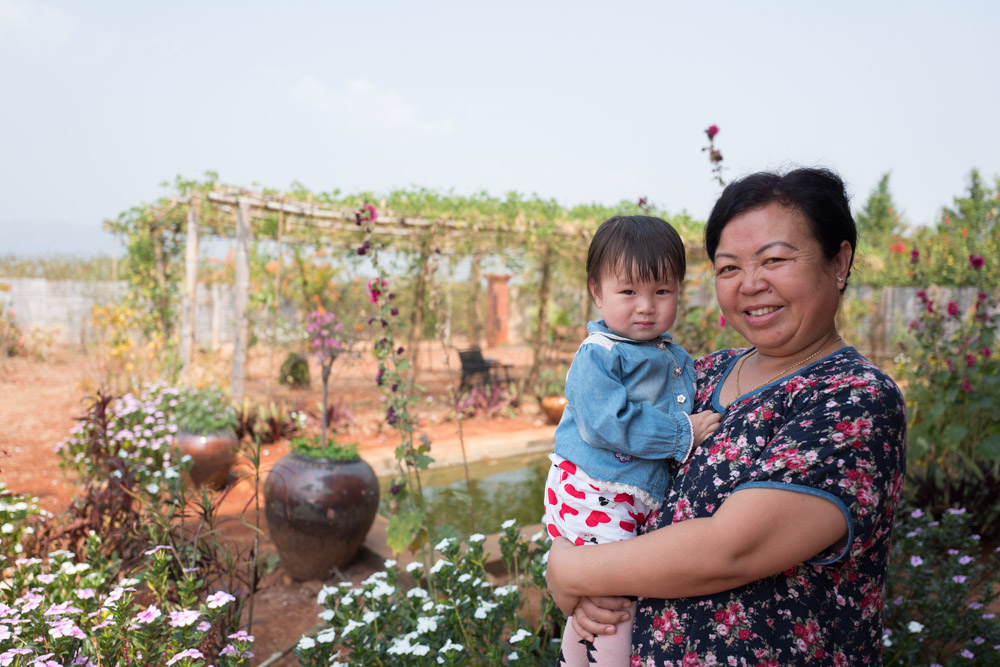
Ma Aye Aye Thant, the owner of Pindaya Farmhouse
As a 100% Myanmar-owned company, employing local people, supporting local businesses and keeping financial benefit within the country is at the heart of what we do. Below are some of our core values:
- Myanmar’s chequered history has meant financial transparency is a contentious issue – visitors increasingly want to know where their money goes and ensure it does not support sanctioned individuals or companies, or those that participate in unethical practices. As a company, we abide by all national registration, licensing and tourism legislation and do not engage in bribery, corruption or fraud;
- We understand that international sanctions and critical media may have serious consequences for our partners, so we use reports such as those published by the UN Fact-Finding Mission (2019) to inform and guide their product choices, and recommend they avoid entities where transparency is unclear. We are one of the very few companies to take immediate action on information such as this;
- We aim to employ local people where possible and although they come from a variety of places, ethnic groups and backgrounds, nearly every member of our staff is a Myanmar national;
- To control our supply chain as much as possible, we choose to use operators that are ethical, abide by the law and have financial clarity;
- We only promote bona fide community-based tourism (CBT) projects such as the initiatives supported by the ITC in Kayah State and Dawei, and the community-involved Pa-O trekking activities in Shan State;
- We prefer to use to small, boutique properties that are family owned and run. We particularly value those that have introduced sustainable practices such as waste management, energy reduction and water refill stations;
- Where possible, we suggest our guests visit local restaurants to conserve traditional practices and highlight ethnic cuisine, and that they try dishes that are unique to the regions they are visiting. Poor sanitation is common in Myanmar, so we recommend tried and tested restaurants with high standards;
- We encourage travellers to spend their money at shops that support the community and specialise in handmade, locally sourced items such as Hla Day and Sone Tu in Yangon and M-Boutik in Bagan. We avoid shops selling items that are imported or produced unethically, including jade and gemstones, and strictly boycott those where animal products are sold.
As well as the numerous benefits responsible spending provides, we believe it also makes for a better trip! To help our guests choose experiences that are win-win, we feature responsible experiences in a dedicated section on our website, exclusive partner space, marketing communications and use a special ‘RT’ symbol for easy identification.
Environment
We are conscious of our impact on the environment and seek to use sustainable or low impact alternatives in the operations where possible.
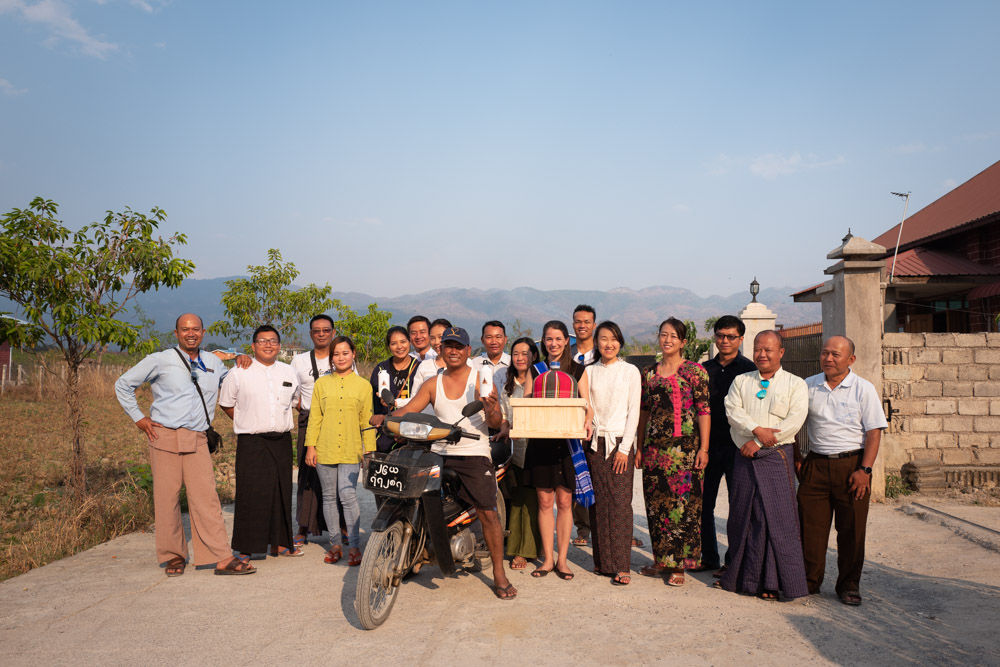
Celebrating the launch of our in-car water refill station
Destinations
To protect historic and natural areas we focus on privately guided, independent, small scale touring, rather than large groups:
-
- We promote the benefits of visiting the country in low season, and proactively develop suitable experiences for this time of year, when fewer tourists travel;
- Our guides brief guests about the importance of preserving national heritage and keeping historic treasures within the country, advising against purchasing antiques as souvenirs (objects dated pre-1886) or taking natural or historic items home;
- To ensure the health, safety and security of our travellers we follow the Myanmar government rules and each country’s travel advice on restricted areas. We immediately update our partners and clients when this advice changes and adapt trips accordingly;
- We avoid destinations where tourism could support unethical activities such as deforestation in the Upper Ayeyarwady River region and mining in Mogok, using the information of experienced organisations such as the Myanmar Responsible Tourism Institute and Global Witness as a guide.
Plastic reduction
A particularly important issue in Myanmar and one we are extremely passionate about.
-
- We were one of the first companies to replace plastic water bottles with in-car water refill stations in all of our destinations, collaborating with social business Helping Hands to create sustainable boxes from disused pine pallets;
- Water from our office refill stations is available for public consumption; these can be found via the Refill My Bottle and Refill Not Landfill apps;
- Although wet wipes can be a welcome relief after a day of sightseeing, we recognise the damage they cause to the environment. With suitable alternatives lacking in Myanmar currently, for guests that approve, we offer the option to remove wet wipes from their trips;
- Our Plastic Reduction Packs are a great way for travellers to minimise waste whilst travelling. They include a fabric bag, a reusable bottle and bamboo straw all of which are produced by local businesses;
- We are proud to be one of the founding members of the Yay Chan Sin Movement – a team of like-minded travel industry professionals – encouraging hotels and restaurants to install water refill stations;
- Our guides, drivers and regional offices, who have received training in waste reduction, use their own reusable water bottles, say ‘no’ to plastic bags and dispose of rubbish thoughtfully.
With the outbreak of Covid-19, we continue to review the above to ensure the highest standards of hygiene are adhered to.
Transport
Electric, solar powered and low emission forms of transport are still rare in Myanmar. Instead, we are committed to reducing carbon emissions through creative adaptations to our excursions and the suggested itineraries we offer:
-
- Being a large country with neglected road and rail connections, getting around Myanmar whilst reducing environmental impact is challenging. Our clients want to make the most of their time so itineraries will often include some domestic air travel, but where possible and safe to do so, we suggest trains, boats and treks as alternatives;
- We encourage our visitors to try different modes of transport such as walking, cycling, canoeing and rickshaws;
- On work trips, we encourage our staff to reduce their carbon footprint by taking public transport where it is feasible.
Hotels and restaurants
Where we can, we prefer to use hotels and restaurants that are environmentally conscious. Some of our criteria are:
-
- Hotels that consider their natural surrounds during construction and operation, use sustainable building materials and minimise damage to the ecosystem;
- Plastic-free hotels, or those committed to reducing plastic. We actively promote those with water refill stations for guests;
- Alternative energy sources such as solar power, or efforts to reduce energy consumption;
- A thorough waste management plan with examples such as recycling, composting, reducing food waste with a la carte instead of buffet meals, using grey water for gardens and employing the services of a specialist company like Recyglo;
- A focus on local, organic produce and a farm-to-table approach to food. Many of our favourite hotels have their own on-site gardens and serve fresh, seasonal produce;
- Seaside properties that conserve the marine and coastal environment, protect endangered species and support local communities;
- A sustainability policy, certification – such as TravelLife – and training for all employees.
We are very privileged to have close relationships with properties such as Savoy, Wa Ale, Inle Sanctuary, Arakan Nature Lodge, A Little Eco Lodge and Villa Inle who are setting a sustainable benchmark in the industry.
Office processes
Our environmental approach also extends to our offices, although we admit we have much more work to do in this area. Our current efforts include:
-
- Saving paper by making internal forms electronic, double-sided printing and replacing communication within and between offices with in-house system messaging. With the exception of our annual ‘Experiences’ magazine, all of our marketing and partner communication is digitalised;
- Reducing plastic by encouraging staff to use refillable water bottles and carry reusable bags for shopping. Clean water refill stations and tea and coffee making facilities are available in all offices. Our employees usually bring a packed lunch in traditional tiffin carriers;
- Ensuring all lights, computers and other electronic devices are turned off each evening and when not being used, and minimising the use of air-conditioning where it is practical;
- Offering a shared staff vehicle service to and from our Yangon office to compensate for the city’s lack of public transport options, and reliance on private taxis;
- We plan to employ the services of Recyglo, a well-respected waste management organisation, to help us recycle, minimise food waste and monitor our progress.
Animal Welfare
We are aware that the treatment of animals in Myanmar may not be of the same standard as in other countries. To ensure we uphold the highest standards of animal welfare in the experiences we offer, we commit to the following measures:
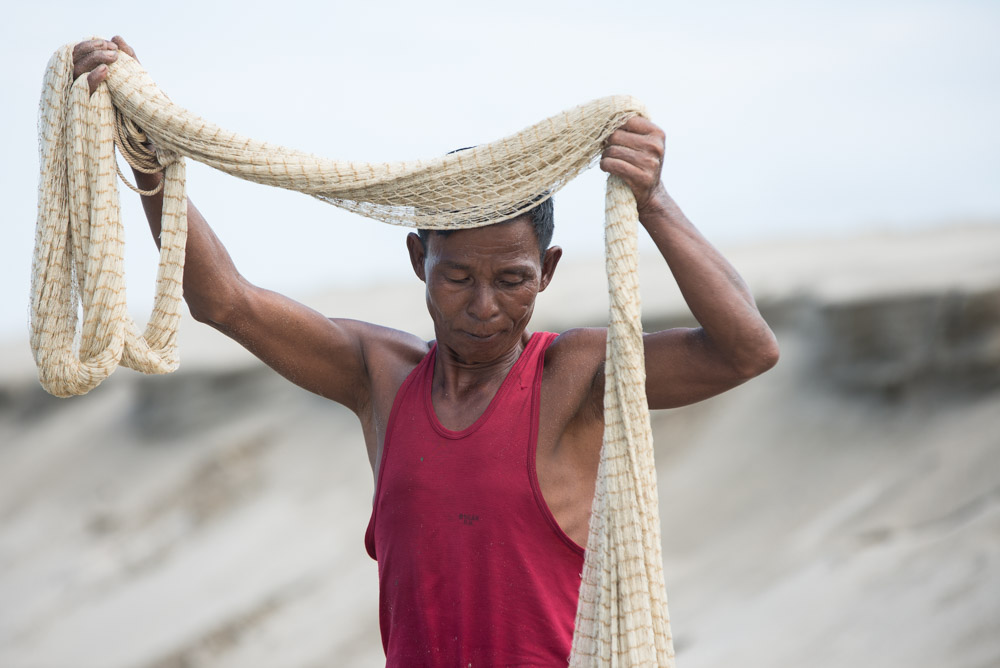
U Maung Lay, a protector of the endangered Irrawaddy dolphin
- Providing non-exploitative, positive experiences only, where the main aim of the animals is not as a tourist attraction;
- Only offering activities where we know animals are treated fairly and have high living standards, including adequate housing and medical care, their daily activities are as natural as possible and they are not used for performances, entertainment, or are handled by tourists.
We do not support:
- Captive animal facilities such as zoos and wildlife parks where the primary purpose is tourism, or where non-endangered animals are bred;
- Places where animals are taken from the wild;
- Establishments that offer elephant riding;
- Places where illegal animal products are known to be sold.
We do support:
- Sanctuaries for vulnerable wildlife, such as former working elephants, of which the number has increased sharply following the government’s ban on teak logging;
- Establishments that conserve threatened species, for example, Mizontaung Wildlife Sanctuary;
- Activities that provide awareness or raise funds to protect endangered species, whilst allowing visitors to observe wildlife undisturbed in their natural habitat. The dolphin conservation programs by Living Irrawaddy and WCS are examples of this;
- Horse carts and horse-riding activities where the animals are well cared for, and tourism provides a crucial source of income for local people.
We are advocates of the fantastic work WWF and Voices For Momos have done in Myanmar to improve animal welfare standards and convince the government to take a stand on the illegal wildlife trade. We also use the ABTA Animals in Tourism guidelines to ensure our approach remains in line with international norms.
Policy, Procedure and Social Purpose
Underpinning our sustainable commitments is our pledge to review, analyse and adapt our policies, ensuring our approach remains credible, appropriate and of a high standard.
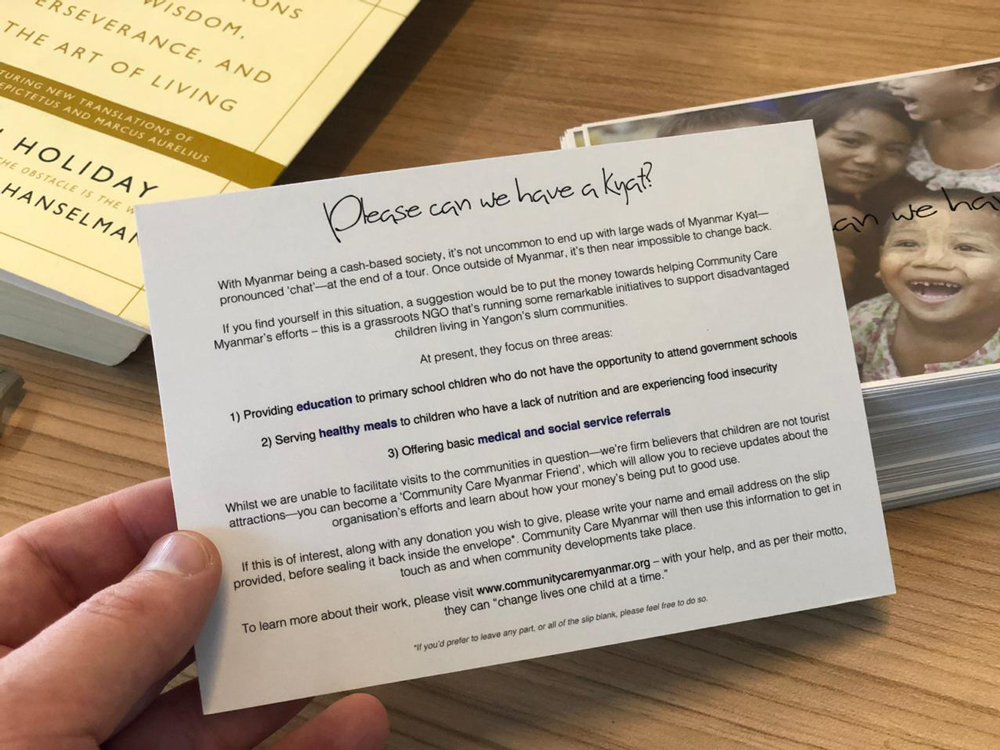
In support of Community Care Myanmar, a grassroots NGO based in Yangon, Tour Mandalay has launched the ‘Please can we have a kyat?’ campaign
We do this by:
- Proactively responding to traveller feedback regarding responsible travel. Each guest is provided with a post-trip questionnaire which is reviewed by our product and management teams, who investigate and rectify any issues. Comments received from our partners or from our staff on educational trips are handled in the same way;
- Regular sustainability training for our office staff, guides, drivers and regional operations teams with accompanying documents such as practical handbooks, signs and charts;
- Discussing sustainability with our suppliers and incorporating it into our contracting process;
- Planning to employ a Sustainability Executive to oversee processes and procedures across the company, with a view to receiving TravelLife Partner certification.
Giving back
We are proud members of our community and with regional offices throughout the country, realise our potential to make a difference. Although we appreciate the noble efforts of many tourism businesses to establish their own charitable foundations, recognising that our strength is as a tour operator, we have deliberately chosen not to do this. Instead, we partner with carefully chosen philanthropic organisations that know much better than we do, and assist them however we can.
Our ‘Please can we have a kyat?’ initiative, launched in 2019, offers travellers the opportunity to donate their unused Myanmar Kyat to Community Care Myanmar (CCM). CCM works with vulnerable communities on Yangon’s outskirts, providing meals, education and essential supplies. In return, donors receive regular communications about the progress of the project.
We are keen participants in activities such as rubbish clean ups and emergency food donations, specific to the areas in which we are based. Some of our inspirational team members have even setup new initiatives in their local communities. Our Yangon team also make a personal monthly donation that it is put towards their chosen charity each year. This generous gesture is entirely voluntary and wholly led by our staff.
For any questions regarding this policy, or if you feel there’s any obvious ways it can be improved, feel free to reach out to us at info@tourmandalay.travel.
